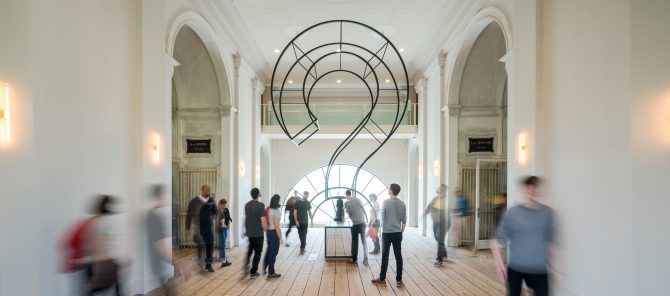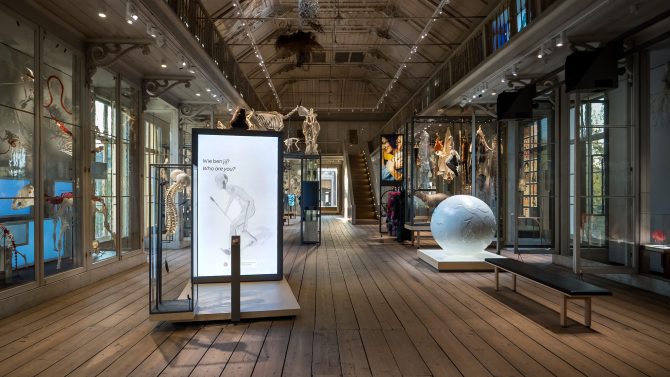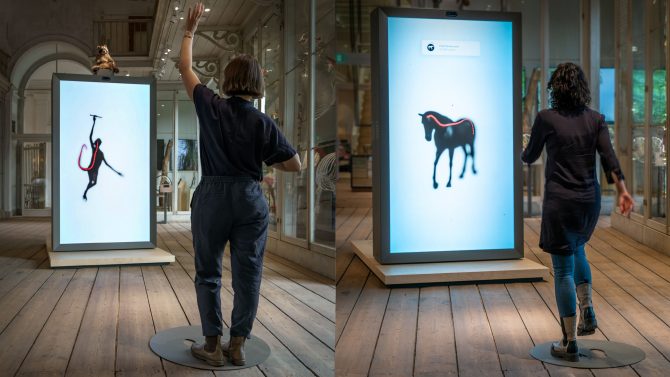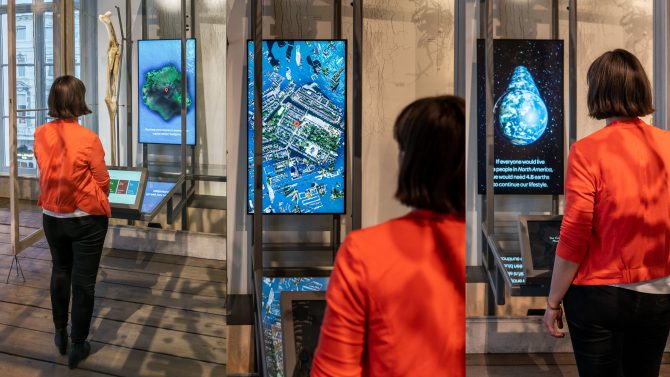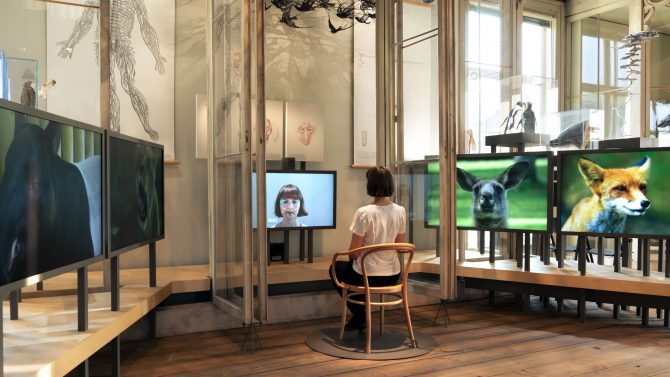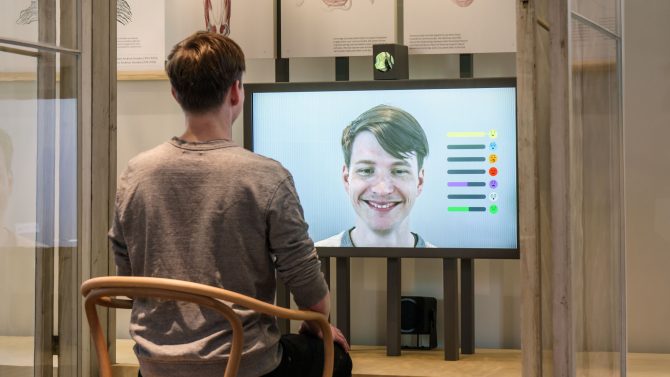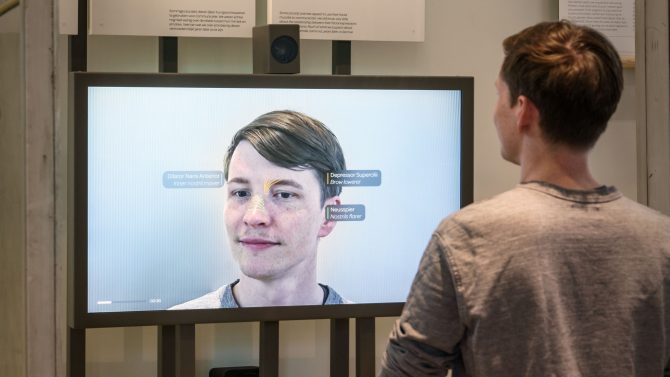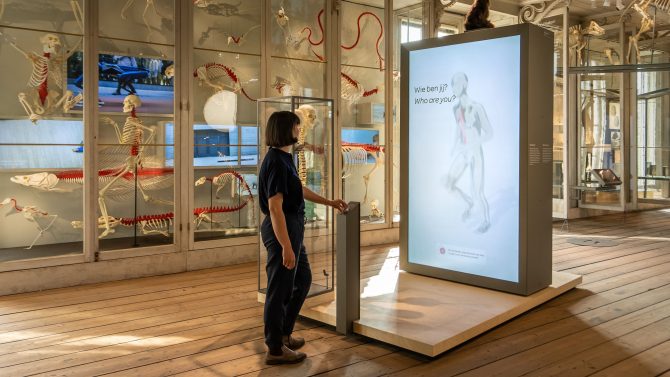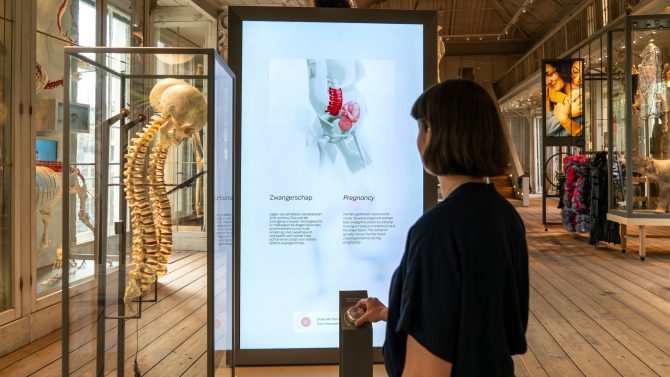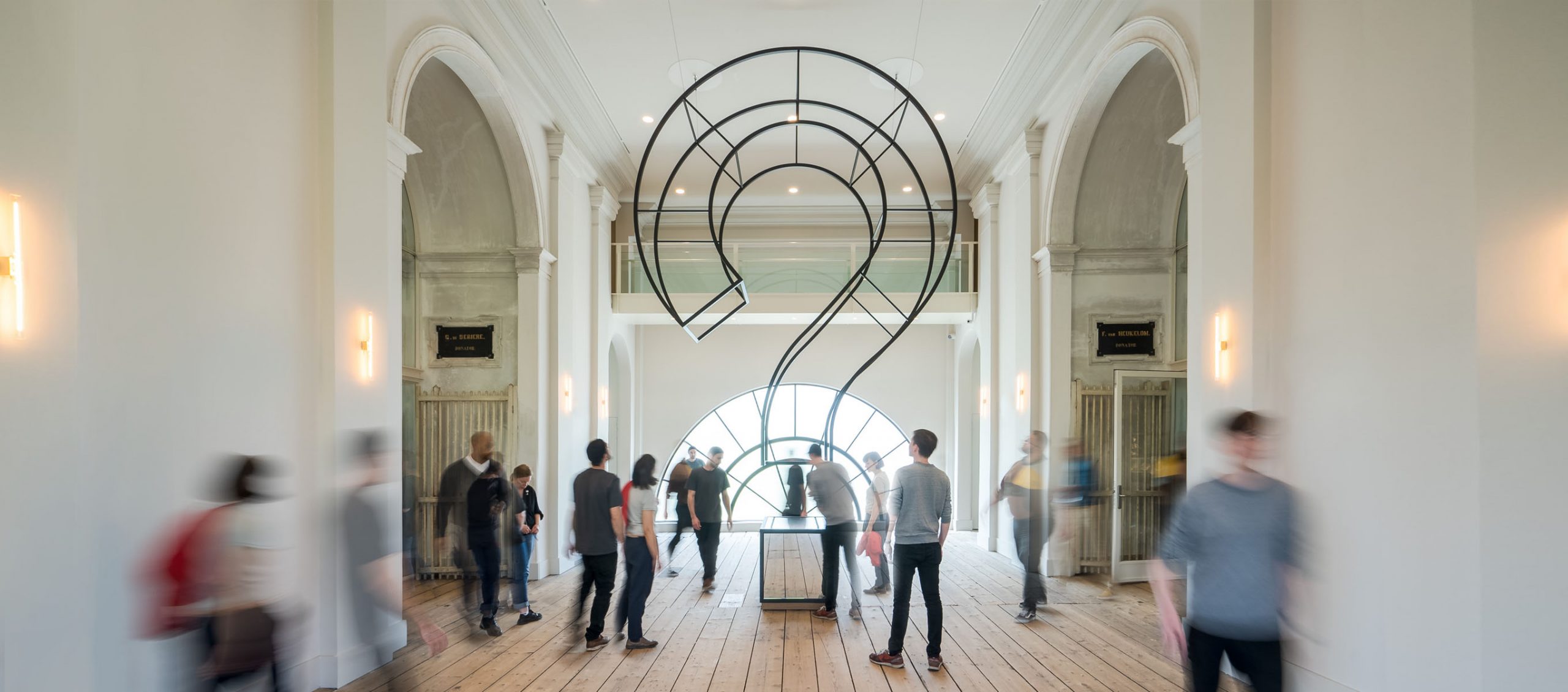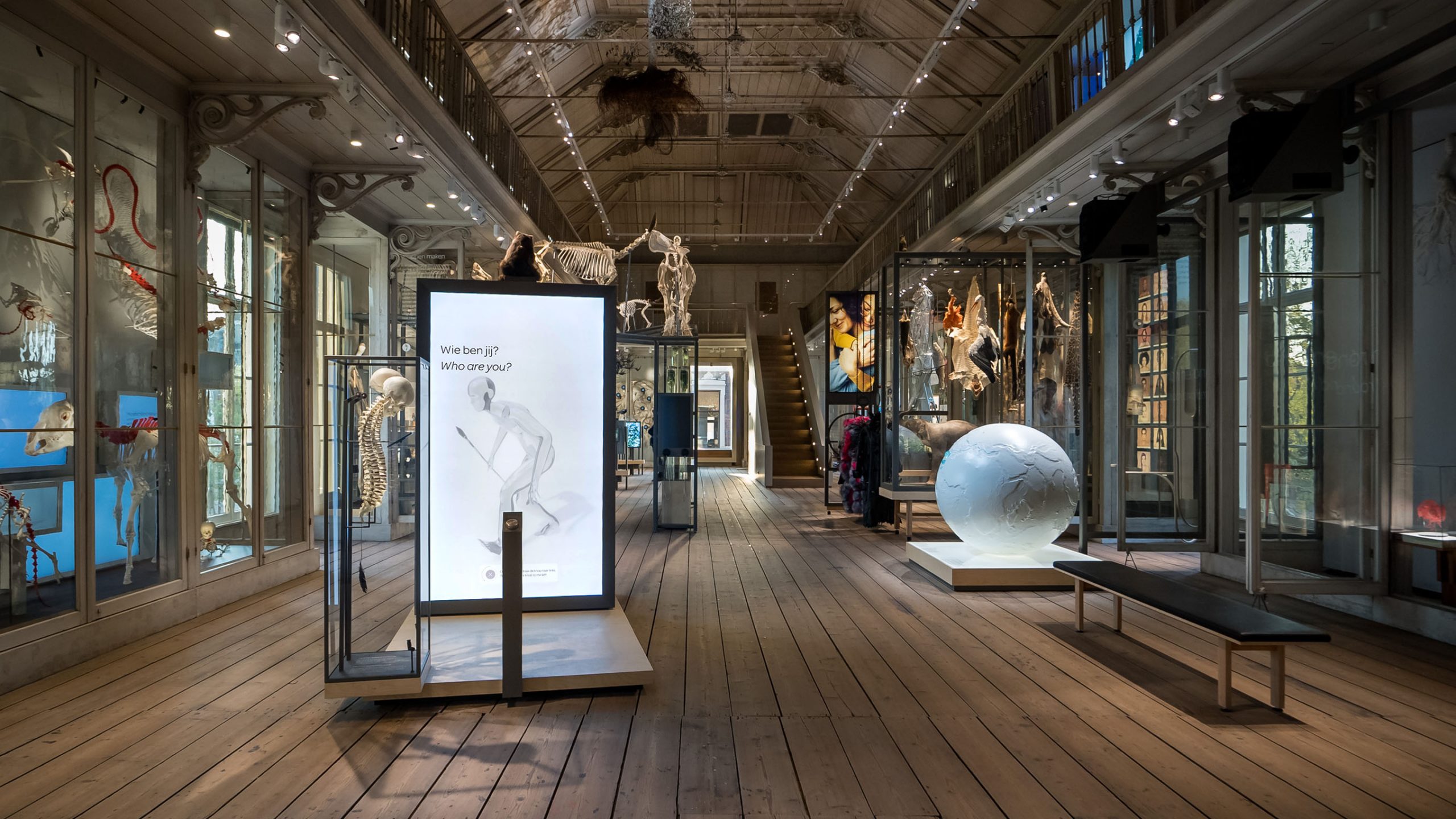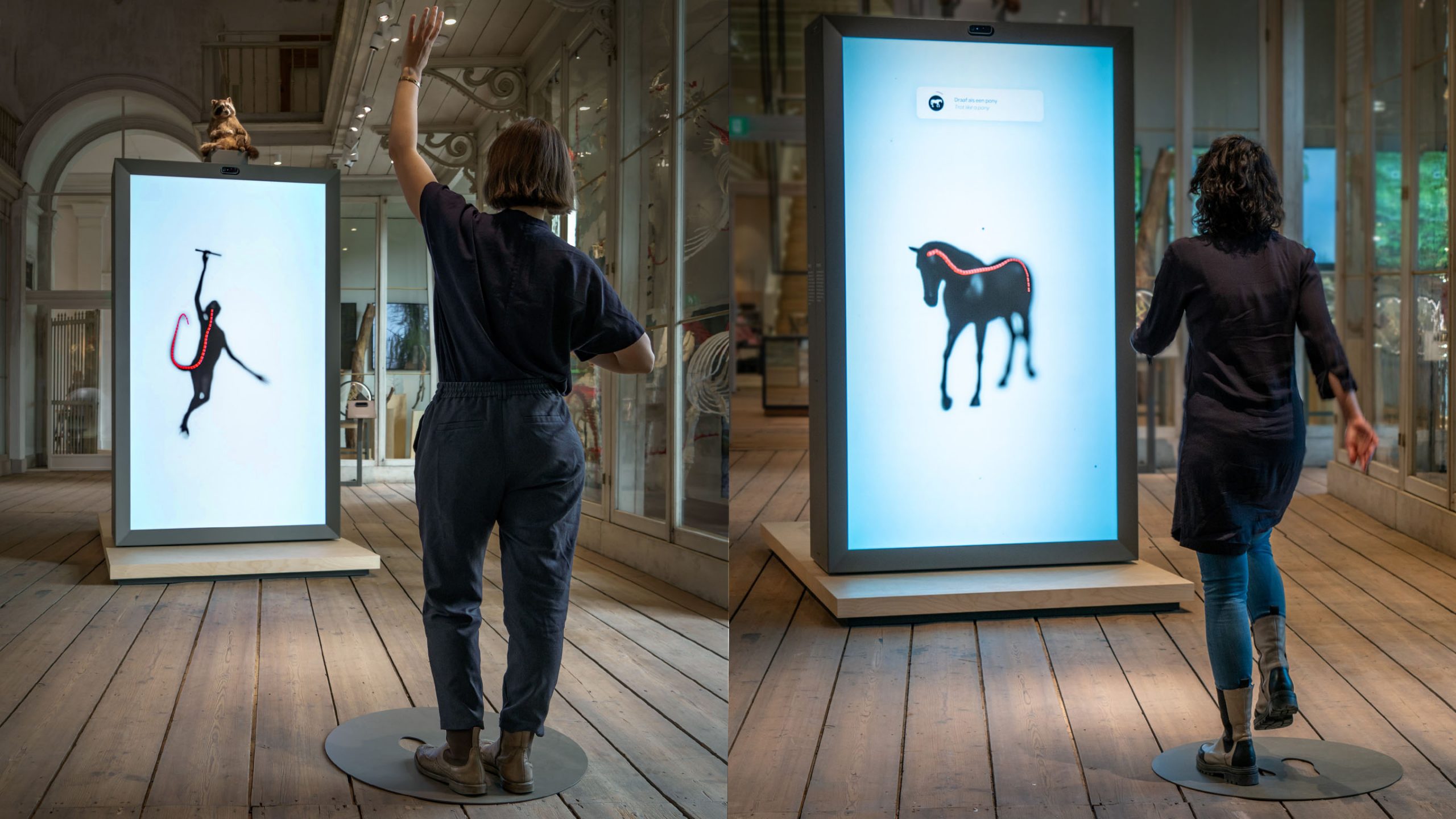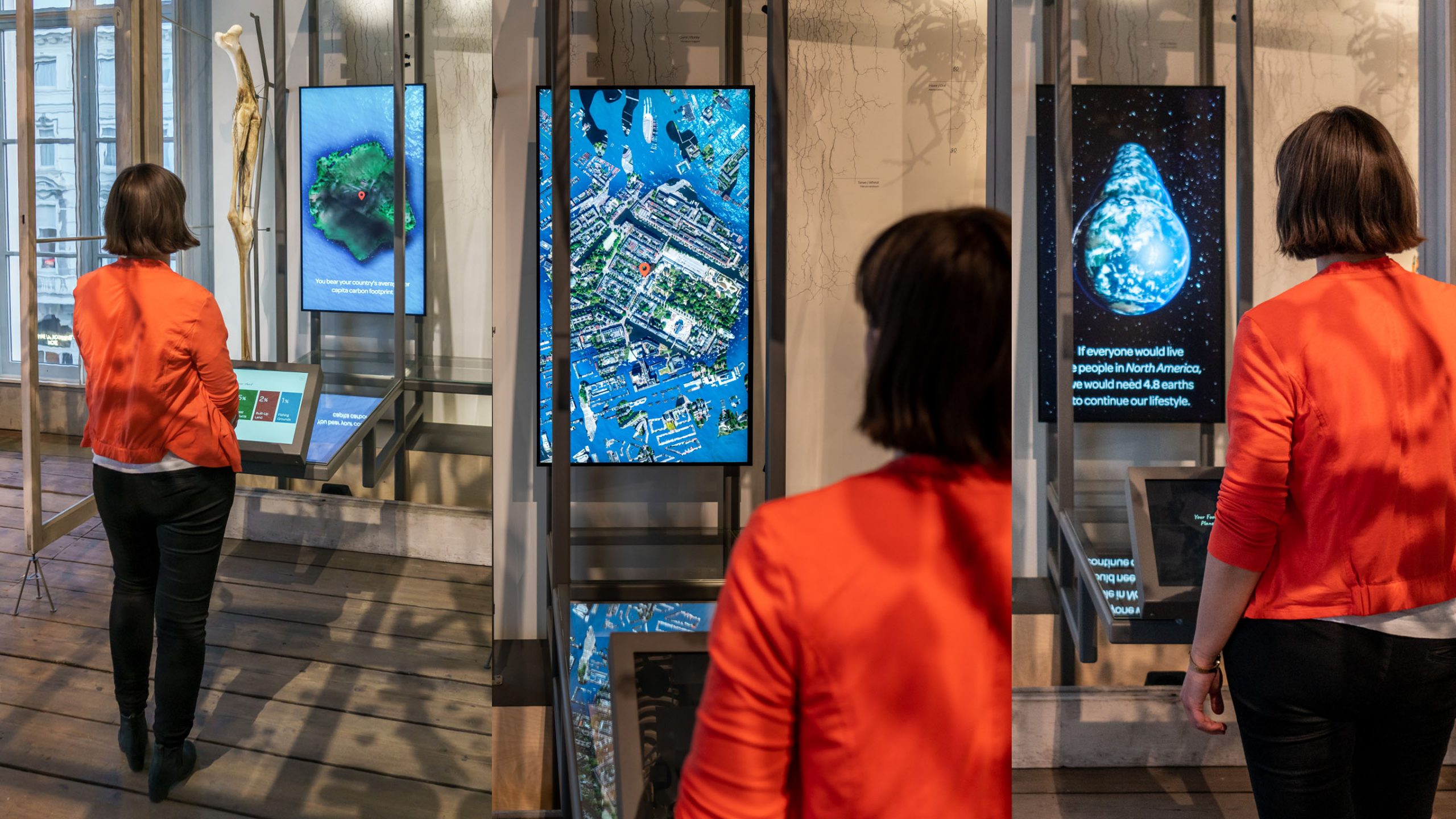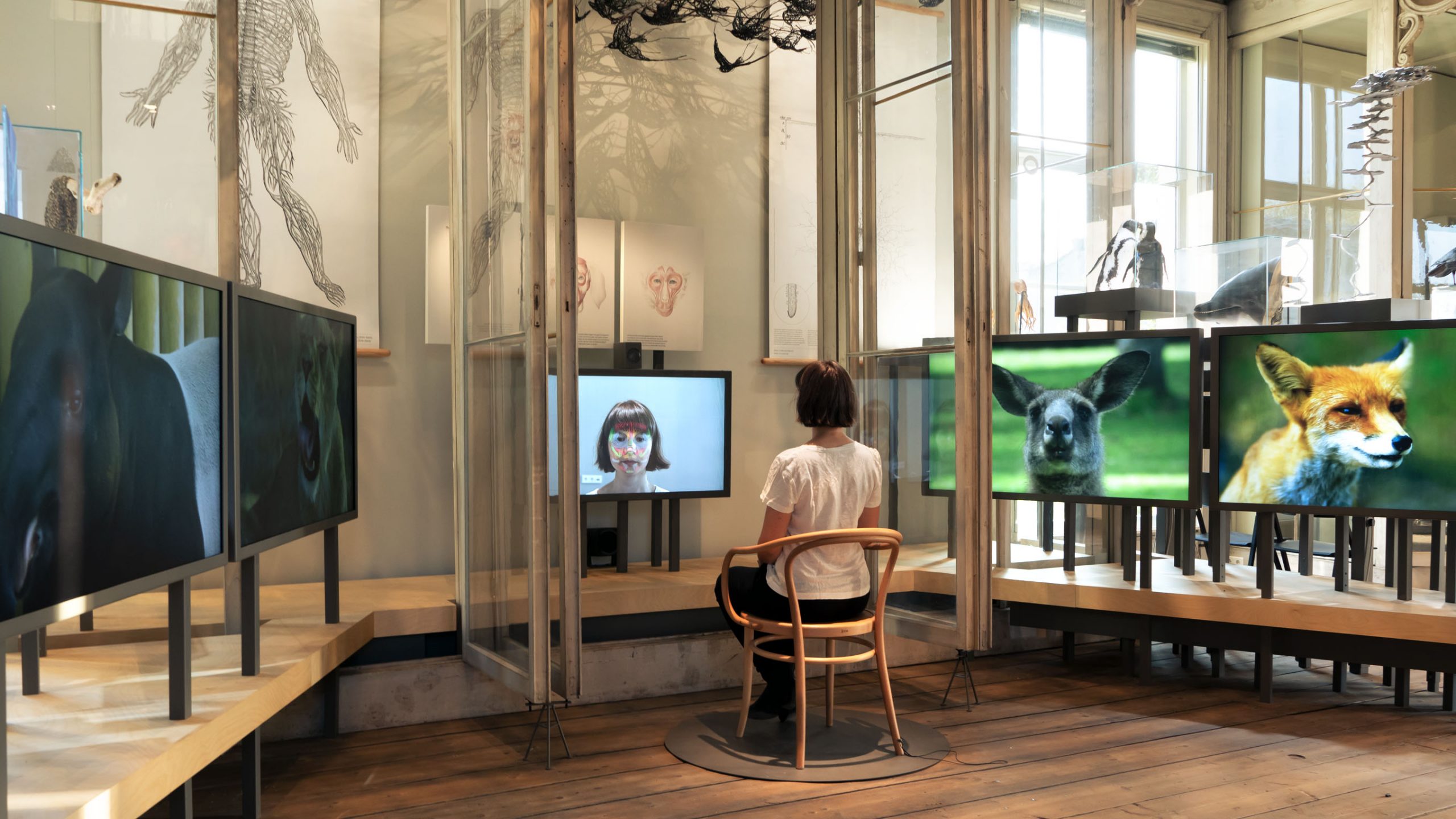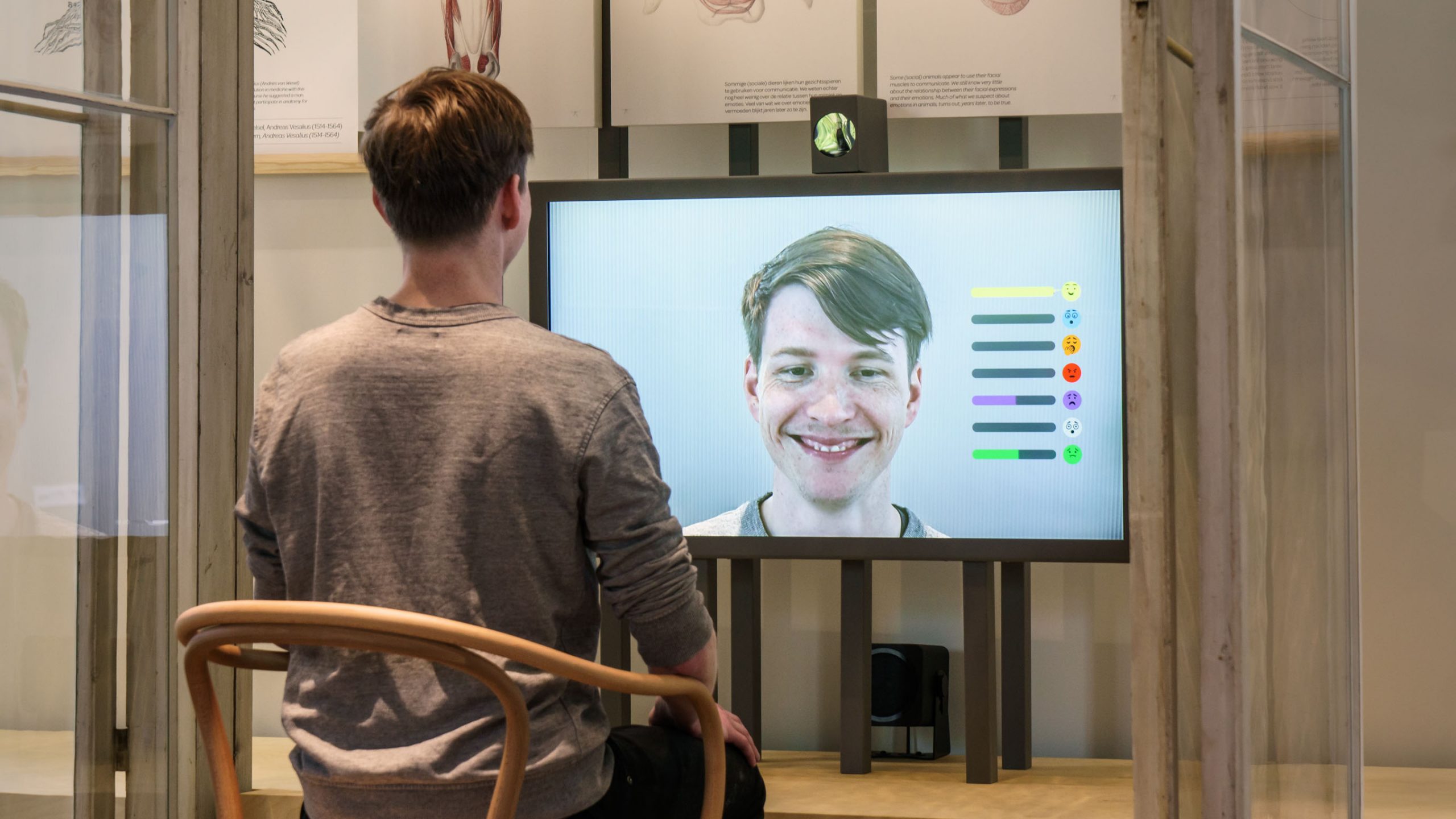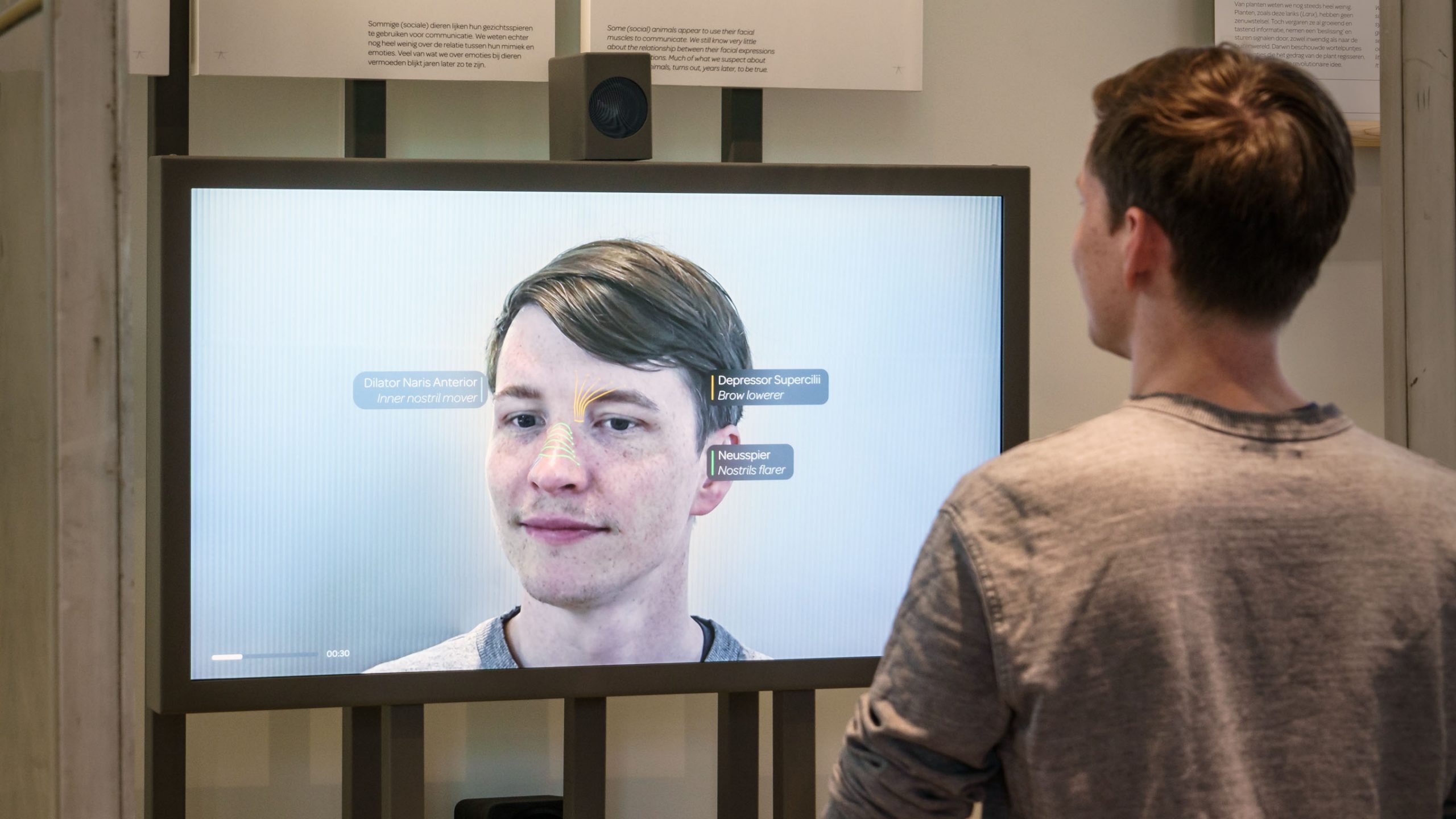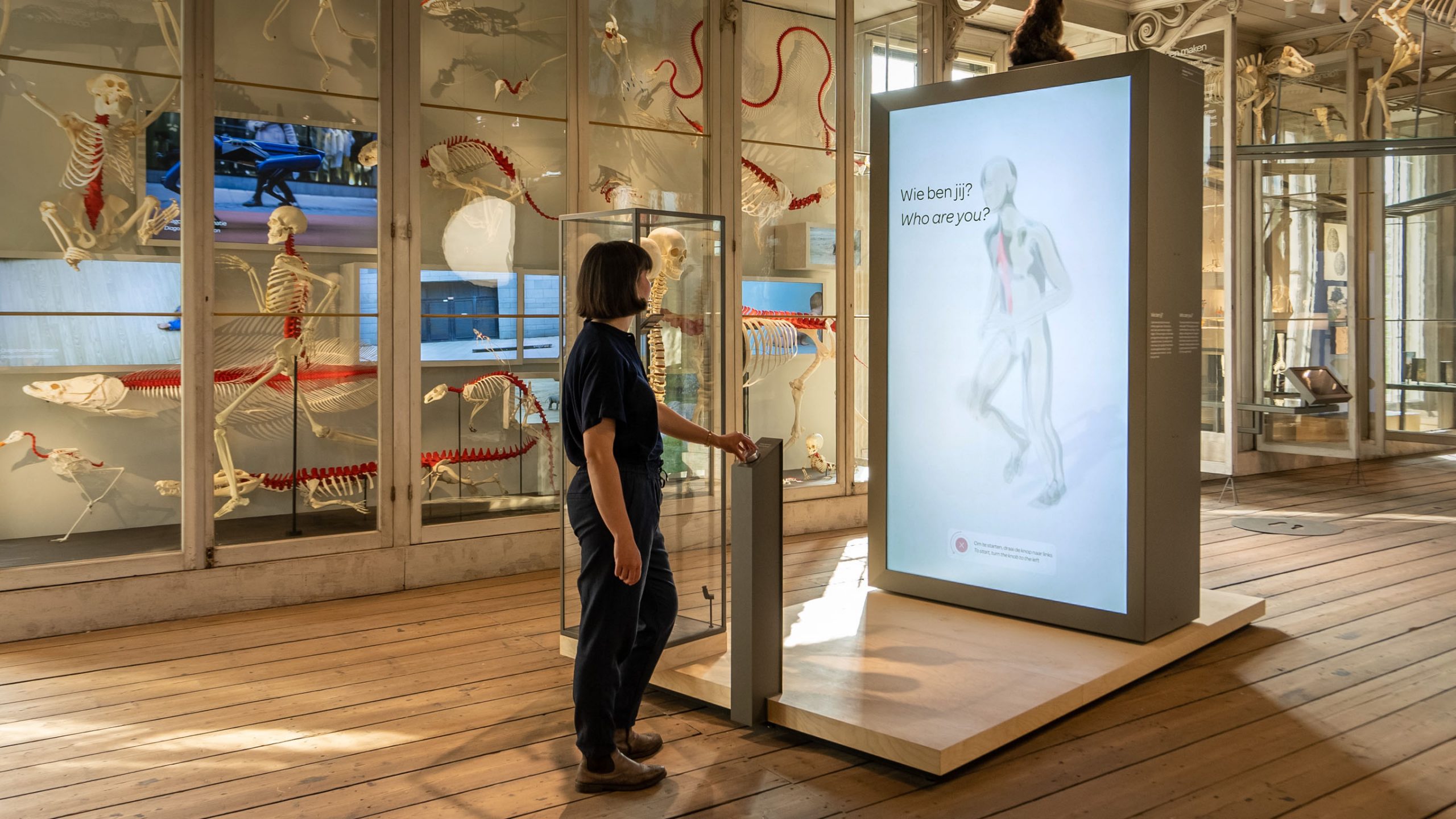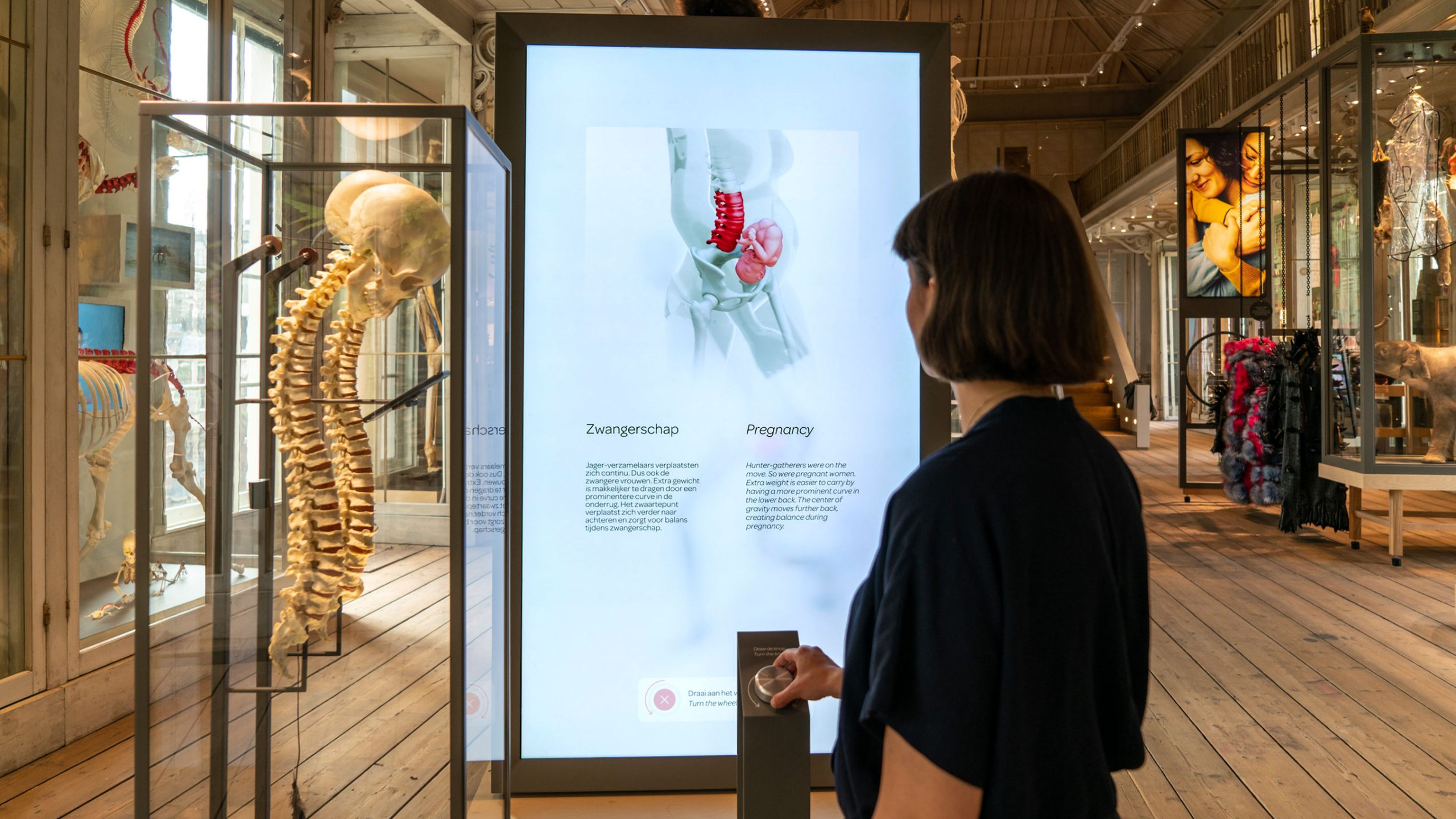Groote Museum, 2022
Amsterdam, Netherlands
Asking big questions, exploring connections you never knew about and at times also calling on you to think – after standing empty for 75 years and undergoing extensive renovation work, Amsterdam’s former natural history museum is reopening its doors with a completely new concept. ART+COM played the role of idea generator from the outset and produced five interactive media stations for the exhibition.
The Groote Museum, which simply means “big museum”, originally opened in 1855 for the zoological society Natura Artis Magistra. Situated right next door to the Amsterdam Royal Zoo, it exhibited specimens from the natural world such as shells, skeletons and animal skins, which were supplied by the affiliated zoo. In those days, humans saw themselves as separate and superior beings. Today’s Groote Museum clearly makes a clean break from this view by highlighting the links between all living creatures – and not just among mammals. From prepared tree roots and over-dimensioned earthworms to the degenerated spine of a homo sapien staring at a mobile phone: all original objects were specially developed for the exhibition. They have been combined with interactive media stations, art interventions and audiovisual items to create an astonishing mosaic of life. Twelve chapters run through the impressive rooms within the historical museum building enabling visitors to see how everything in our world is connected.
While creating the concept for the media exhibits, ART+COM focused on forms of interaction that revolve around the visitors’ own bodies. The different chapters take a specific part of your body as a starting point and help you identify with the central messages behind the exhibition.
In the west wing, you will find yourself in front of a full-size screen showing a transparent person (“Gläserner Mensch”) in motion. Animations of fifteen body parts show the uniqueness of the human anatomy. How do we keep our balance on just two legs? What does walking upright have to do with the ability to speak? And what advantages do humans have over all animals?
The next exhibit uses a very hands-on approach to show you how our unique spines move – you operate it using your own body. Machine learning algorithms detect your movements and assign them to different animals that then move with you. The installation allows you to see how it feels to crawl like a salamander, sprint like a jaguar and swim like a sea anemone instead of spending the whole day sitting.
Our bodies – to be more precise: our faces – form the interface for another installation. Recognition and subconscious reflection of emotions form the basis for our social interaction – not just with other people, but also with animals. We do this above all through our facial expressions. The exhibit illustrates this by combining two innovative technologies: the tracking of facial muscles and the assignment of the facial movements to emotions using the Facial Acting Coding System. While you watch your own face on the screen, the facial muscles are projected onto each facial movement and decoded as emotions. Once you interact with the avatar, it finally becomes clear: even if the person opposite us is artificially generated by a computer, we react with real feelings.
The next media station looks at our ecological footprint. This is an often abstract and complex topic that we tackled with an artistic element to create a personal experience. A satellite image of your home is transformed into the map of an island that holds all the resources needed to maintain the standard of living in your country. This exhibit uses data from the Global Footprint Network and machine learning. You will soon realise: if everyone were to live like us, we would need many more planets than just the Earth.
All the exhibits at the Groote Museum pose major questions. It is down to you yourself to find the answers. A sculpture in the shape of a question mark that reaches up to the ceiling in the entrance area calls on you to think. A second level then comes into view as you approach it: a range of augmented reality effects place you in fantastic scenes that question your own role in the environment. After all, everything really is connected.
Partner
Content, scientific research: ARTIS
Architecture: Kossman de Jong
Production of exhibits “Spine” and “FACS”: neoanalog
Exhibition construction: Bruns
Hardware: Ata Tech
